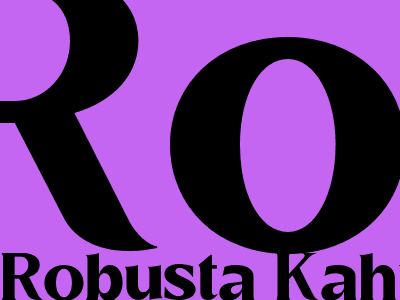Robusta Kahvi: An Essential Exporter and a Harbinger of Climate Change
An Overview of Robusta Kahvi
Robusta coffee, scientifically known as Coffea canephora, is a highly productive and resilient coffee species native to Central and Western Africa, playing a crucial role in the global coffee industry and occupying approximately 30% of the world's coffee production.
Robusta beans are known for their characteristic strong and bitter flavor, along with a higher caffeine content compared to Arabica beans. This unique flavor profile makes Robusta particularly suitable for espresso blends, providing the rich and bold flavors that coffee enthusiasts seek in their morning brew.
Harbinger of Climate Change
Vulnerability and Adaptation
Robusta coffee, like many other agricultural commodities, is susceptible to the impacts of climate change, which pose significant challenges to its cultivation and productivity. Rising temperatures, erratic rainfall patterns, and extreme weather events can adversely affect crop yields and bean quality.
To mitigate these challenges, scientists and researchers are investing in developing Robusta varieties that are more resilient to climate change effects. This involves breeding programs to create hardier plants that can withstand harsh conditions and produce stable yields.
Importance of Conservation
The conservation of Robusta coffee is essential for the sustainability of the coffee industry and the livelihoods of countless farmers who rely on its cultivation. Preserving and protecting the genetic diversity of Robusta is crucial to ensure its continued adaptability to changing climatic conditions.
Global Impact
Robusta coffee plays a significant role in the global coffee market, contributing substantially to the economies of producing countries in Africa and Asia. It is primarily cultivated in countries like Vietnam, Indonesia, and Uganda, where it serves as a major source of income for smallholder farmers.
The consumption of Robusta coffee is widespread, particularly in regions where strong coffee flavors are preferred, notably in Southern Europe, Southeast Asia, and parts of Latin America. Its versatility in blending with Arabica beans adds depth and complexity to coffee beverages.
Conclusion
Robusta coffee is a valuable contributor to the global coffee industry, offering unique flavor characteristics and a resilient cultivation profile. However, the impacts of climate change pose challenges to its sustainability, highlighting the need for conservation efforts and the development of more resilient varieties.
By safeguarding the future of Robusta coffee, we not only preserve a vital agricultural commodity but also support the livelihoods of countless farmers worldwide, ensuring the continued enjoyment of this beloved beverage for generations to come.

Komentar